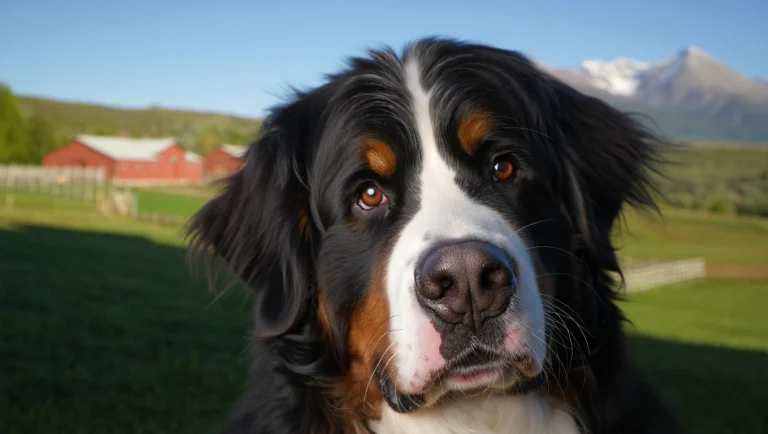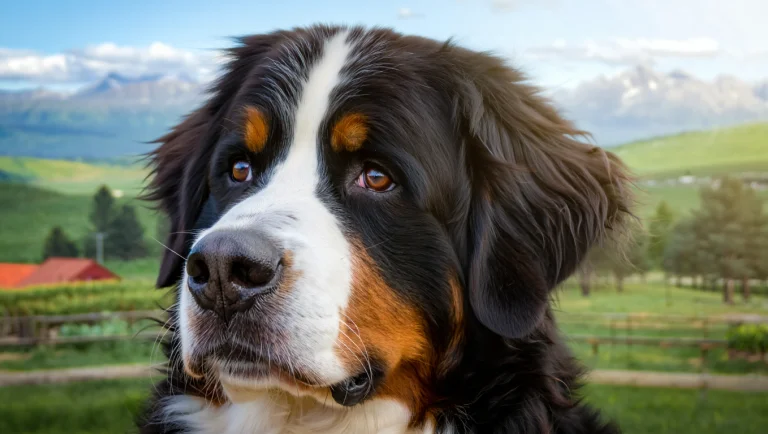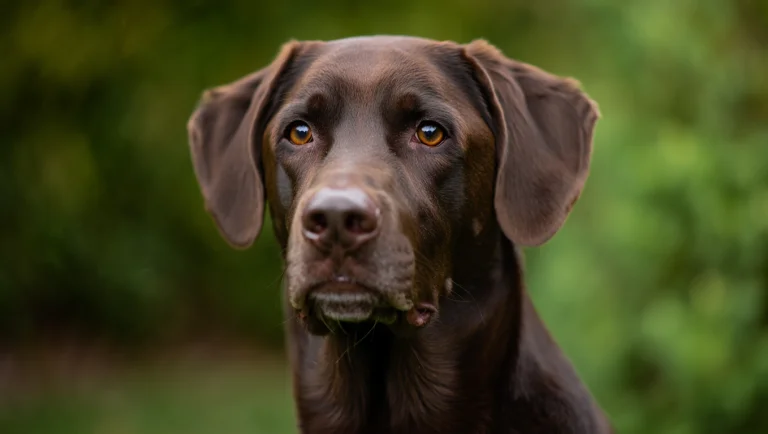Looking for a Bernese Mountain Dog for sale? Discover 5 essential things to know about health, grooming, training, and costs before welcoming this gentle giant home.
Table of Contents
Considering adding a Bernese Mountain Dog to your family? These majestic, gentle giants with their striking tri-colored coats have captured the hearts of dog enthusiasts worldwide. Before you search for a “Bernese Mountain Dog for sale” online, it’s crucial to understand what ownership of this magnificent breed entails. From their specific health considerations to exercise needs and temperament traits, being well-informed will help ensure you make the right decision for both your family and your potential new four-legged companion. In this comprehensive guide, we’ll explore five essential aspects every prospective Bernese Mountain Dog owner should know, helping you determine if this breed is truly the perfect match for your lifestyle.

1. Understanding the Bernese Mountain Dog Breed History and Characteristics
Origins and Purpose
The Bernese Mountain Dog (also known as “Berner” or “Bernese”) originated in the Swiss Alps, specifically in the canton of Bern, Switzerland. These powerful working dogs were bred for multiple farming purposes, including:
- Draft animal: Pulling carts loaded with milk, cheese, and other farm products
- Herding assistant: Helping manage cattle and other livestock
- Farmhand companion: Serving as loyal guardians of farms and families
This multi-purpose working background has shaped much of what we see in modern Bernese Mountain Dogs for sale today. Their muscular build, calm demeanor, and work-oriented personality stem directly from their agricultural heritage.
Physical Characteristics
When searching for a Bernese Mountain Dog for sale, understanding their physical traits helps set proper expectations:
| Characteristic | Male | Female |
| Weight | 85-110 lbs (38-50 kg) | 70-95 lbs (32-43 kg) |
| Height | 25-27.5 inches (64-70 cm) | 23-26 inches (58-66 cm) |
| Lifespan | 7-10 years | 7-10 years |
| Coat | Thick, moderately long, slightly wavy or straight | Same |
| Colors | Tri-colored: jet black, clear white, and rust | Same |
Their most distinctive feature is their striking tri-colored coat—jet black ground color with symmetric white markings on the chest, paws, and tail tip, plus rust markings above the eyes, on the cheeks, and around the white chest marking.
Temperament Overview
The Bernese Mountain Dog temperament is often described as:
- Gentle and affectionate: Especially with family members
- Patient: Generally excellent with children and other pets
- Loyal: Forms strong bonds with their families
- Calm: Typically less hyperactive than many other large breeds
- Intelligent: Responds well to consistent, positive training
- Slightly reserved: May be aloof with strangers initially
This temperament profile makes them excellent family companions, though as we’ll discuss later, proper socialization is essential to develop these positive traits fully.

2. Health Considerations and Lifespan Challenges
Shorter Lifespan Reality
Perhaps the most significant consideration when looking for a Bernese Mountain Dog for sale is their relatively short lifespan compared to other breeds of similar size. With an average lifespan of just 7-10 years, this represents one of the shortest lifespans among domestic dog breeds.
This shortened lifespan is primarily due to genetic health issues that have become prevalent in the breed through years of selective breeding. Understanding this reality is crucial for prospective owners to prepare emotionally and financially.
Common Health Issues
When considering a Bernese Mountain Dog for sale, be aware of these common health concerns:
Cancer
Sadly, cancer affects approximately 50% of all Bernese Mountain Dogs, often leading to their premature passing. The most common types include:
- Histiocytic sarcoma: Particularly prevalent in the breed
- Mast cell tumors
- Lymphoma
- Hemangiosarcoma
Orthopedic Issues
Due to their large size and genetic predispositions, Berners commonly experience:
- Hip dysplasia: Malformation of the hip joint
- Elbow dysplasia: Developmental abnormalities in the elbow joint
- Cruciate ligament tears: Similar to ACL injuries in humans
- Osteochondritis dissecans (OCD): A joint condition affecting cartilage
Other Health Concerns
Additional issues to be aware of include:
- Bloat/Gastric torsion: A life-threatening emergency where the stomach twists
- Progressive retinal atrophy: Causing gradual vision loss
- Von Willebrand’s disease: A bleeding disorder
- Degenerative myelopathy: A progressive spinal cord disease
Health Testing and Responsible Breeding
When searching for a Bernese Mountain Dog for sale, prioritize breeders who perform comprehensive health testing. Responsible breeders should provide documentation of tests for:
- Hip and elbow evaluations (OFA or PennHIP)
- Eye clearances (CERF)
- Cardiac examinations
- Von Willebrand’s disease testing
- DNA tests for degenerative myelopathy
These tests cannot guarantee a healthy dog, but they significantly improve the odds of purchasing a puppy with fewer genetic health concerns. Expect to pay more for puppies from health-tested parents, but consider this an investment in potentially fewer veterinary bills and heartache later.
3. Exercise and Space Requirements
Exercise Needs Through Life Stages
Despite their large size, Bernese Mountain Dogs have moderate exercise requirements that vary throughout their life stages:
Puppies (0-18 months)
- Caution required: Growing joints need protection from excessive exercise
- Short walks: 5 minutes per month of age, twice daily (e.g., a 4-month-old puppy needs 20-minute walks)
- Free play: In secure, controlled environments
- Mental stimulation: Training sessions and puzzle toys
- Avoid: Jumping, stairs, and slippery floors during developmental periods
Adult Dogs (18 months-5 years)
- Daily walks: 45-60 minutes total, can be divided into multiple sessions
- Moderate hiking: On appropriate terrain
- Pulling activities: Cart pulling with proper training and equipment
- Play sessions: With family or other dogs
Senior Dogs (5+ years)
- Adjusted exercise: Based on individual health and mobility
- Shorter walks: Multiple shorter sessions often better than one long walk
- Swimming: Low-impact exercise excellent for aging joints
- Mental stimulation: Increasingly important as physical activity decreases
Living Space Considerations
When looking for a Bernese Mountain Dog for sale, evaluate your living space carefully:
Ideal Living Situations
- Suburban home: With a securely fenced yard
- Rural property: With supervised outdoor access
- Cooler climates: Their thick coat makes them sensitive to heat
Challenging Living Situations
- Apartments: Possible but difficult without significant daily outings
- Hot climates: Can cause significant stress and health issues
- Homes with many stairs: Challenging for puppies and older dogs with joint issues
Temperature Sensitivity
Bernese Mountain Dogs were bred for alpine climates and can struggle significantly in warm weather:
- Temperatures above 75°F (24°C) require careful monitoring
- Access to air conditioning during summer months is essential
- Early morning and evening exercise during warm seasons
Exercise Beyond Physical Activity
When considering a Bernese Mountain Dog for sale, remember they need mental stimulation as much as physical exercise:
- Working dog heritage: Means they enjoy having jobs to do
- Training activities: Obedience, rally, nosework
- Pulling sports: Carting, drafting, weight pulling (with proper training)
- Gentle agility: Modified for their size and joint health
- Therapy work: Many excel as therapy dogs due to their gentle nature
These activities fulfill their working heritage and strengthen the human-dog bond while providing necessary mental stimulation.

4. Grooming and Maintenance Demands
Managing That Beautiful Coat
The magnificent tri-colored coat that attracts many to search for a Bernese Mountain Dog for sale comes with significant maintenance requirements:
Shedding Patterns
- Year-round shedding: Moderate daily hair loss
- Seasonal blowouts: Heavy shedding during spring and fall coat changes
- Environmental factors: Indoor heating and cooling can affect shedding cycles
Grooming Schedule
| Grooming Task | Frequency | Notes |
| Brushing | 2-3 times weekly (minimum) | Daily during shedding seasons |
| Bathing | Every 1-3 months | More frequently if dirty from outdoor activities |
| Nail trimming | Every 3-4 weeks | More often if not naturally wearing down |
| Ear cleaning | Weekly check, clean as needed | Prevents infections in floppy ears |
| Teeth brushing | 2-3 times weekly (ideally) | Supports dental health |
Essential Grooming Tools
- Undercoat rake: For removing loose undercoat
- Slicker brush: For detangling and removing loose hair
- Wide-toothed comb: For finishing and checking for mats
- High-velocity dryer: Optional but helpful during seasonal shedding
Beyond the Coat: Other Maintenance Needs
When researching Bernese Mountain Dogs for sale, consider these additional maintenance factors:
Drooling Management
While not as prolific as some breeds, Bernese Mountain Dogs do drool, particularly:
- After drinking water
- When anticipating food
- In hot weather
- When excited
Keep towels handy in strategic locations around your home to manage moisture.
Household Cleanliness
Living with a Bernese means adapting to:
- Hair on clothing, furniture, and floors
- Muddy paws after outdoor adventures
- Potential tracking of debris from their feathered legs
- Water splashed from drinking bowls
Investing in quality vacuum cleaners, washable dog beds, and strategically placed mats helps manage these challenges.
Space for Supplies
Their size requires larger versions of everything:
- Appropriately sized crates and beds
- Larger toys that can’t be swallowed
- More substantial food storage
- Bigger grooming tools
Professional Services
While much maintenance can be handled at home, budget for occasional professional services:
- Professional grooming: Every 8-12 weeks helps maintain coat health and includes nail trimming, ear cleaning, and hygiene trimming
- Dental cleanings: Annual veterinary dental work often necessary despite home care
- Specialty baths: For skin conditions or seasonal allergies
These services typically range from $75-150 per session depending on your location and the specific services provided.
5. Training, Socialization, and Behavioral Expectations
Critical Socialization Period
When bringing home a Bernese Mountain Dog for sale, immediate socialization is crucial:
- Window of opportunity: The primary socialization period ends around 16 weeks
- Positive exposures: Should include different people, animals, environments, surfaces, and sounds
- Puppy classes: Highly recommended for safe socialization under professional guidance
- Ongoing process: While early socialization is crucial, continue throughout life
Properly socialized Bernese Mountain Dogs typically grow into confident, stable adults who handle new situations with calm assurance.
Training Approach and Timeline
Understanding the Bernese Mountain Dog’s learning style helps set realistic expectations:
Training Characteristics
- Intelligence: High, but can be independent thinkers
- Sensitivity: Very responsive to tone; harsh methods are counterproductive
- Maturation: Slow to mature mentally (2-3 years for full maturity)
- Motivation: Often food-motivated but also responsive to praise
- Training sessions: Keep short (5-15 minutes) but frequent
Training Timeline
| Age | Training Focus | Notes |
| 8-16 weeks | House training, basic manners, name recognition, socialization | Foundation period, focus on positive associations |
| 4-8 months | Basic commands, leash skills, impulse control | Beginning of adolescence, patience required |
| 8-18 months | Reliable commands, public manners, advanced skills | Adolescent testing period, consistency crucial |
| 18+ months | Refinement, specialized training, working activities | Adult capabilities emerging, deeper learning possible |
Behavioral Traits to Manage
When looking for a Bernese Mountain Dog for sale, understand these common behavioral traits:
Potential Challenges
- Separation anxiety: Strong attachment to family can lead to distress when alone
- Resource guarding: Some lines may show protective behavior around food or toys
- Leash reactivity: Without proper socialization, may react to other dogs when leashed
- Aloofness with strangers: Reserve with unfamiliar people can be misinterpreted
- Stubbornness: Occasionally “selective hearing” when distracted
Positive Traits to Channel
- Working drive: Desire to collaborate with humans
- Family focus: Natural protectiveness of their people
- Intelligence: Ability to learn complex tasks
- Gentle nature: Typically excellent with children when properly socialized
- Adaptability: Generally adjusts well to family routines
Early training and consistent reinforcement help develop these positive traits while managing potential challenges.
Costs of Bernese Mountain Dog Ownership
Initial Purchase Price
When searching for a Bernese Mountain Dog for sale, expect significant variation in price:
- Reputable breeders: $2,500-$5,000 for puppies with health testing, proper socialization, and registration
- Show quality prospects: $3,500-$6,000 for puppies with excellent conformation and pedigree
- Rescue organizations: $300-$800 adoption fees for adult dogs or rehomed puppies
- Regional variation: Prices may be higher in areas with fewer breeders
While tempting to seek lower-priced puppies, extremely low prices often indicate lack of health testing, proper care, or ethical breeding practices. Remember that the purchase price represents a small fraction of lifetime ownership costs.
Ongoing Annual Expenses
Prepare for these yearly expenses when owning a Bernese Mountain Dog:
| Expense Category | Estimated Annual Cost | Notes |
| Quality food | $1,000-$1,500 | Based on 4-6 cups daily of premium food |
| Routine veterinary care | $500-$800 | Wellness exams, vaccines, parasite prevention |
| Preventative medications | $300-$600 | Heartworm, flea/tick treatments |
| Grooming | $600-$1,200 | Professional services 6-8 times yearly |
| Training | $200-$500 | Classes, refresher courses |
| Toys and enrichment | $200-$300 | Durable items needed for large dogs |
| Insurance | $600-$1,500 | Higher than average due to breed health concerns |
Emergency and Health-Related Costs
Due to breed-specific health concerns, budget for potential medical expenses:
- Orthopedic surgeries: $3,000-$8,000 per procedure
- Cancer treatments: $5,000-$15,000+ depending on treatment protocol
- Emergency veterinary care: $1,500-$3,000 per incident
- Mobility assistance: $200-$500 for ramps, steps, supportive harnesses
- Senior care: Increased costs for medication, supplements, and more frequent veterinary visits
Pet insurance can help manage these costs but typically comes with higher premiums for Bernese Mountain Dogs due to their known health issues.
Finding a Responsible Bernese Mountain Dog Breeder
Red Flags to Avoid
When searching for a Bernese Mountain Dog for sale, watch for these warning signs:
- Multiple breeds offered: Focus on breeders specializing in Bernese Mountain Dogs
- Always having puppies available: Quality breeders typically have waiting lists
- Limited health testing: Should go beyond “vet checked”
- Reluctance to show facilities: Good breeders welcome visitors
- No questions for buyers: Responsible breeders screen potential homes carefully
- Puppies younger than 8 weeks: Too early separation from mother and littermates
- No contract or health guarantee: Should provide written documentation
- Online-only transactions: Never purchase without meeting in person
Signs of Responsible Breeding
Look for these positive indicators when researching Bernese Mountain Dog breeders:
- Breed club membership: Active in national or regional Bernese Mountain Dog clubs
- Proven health testing: OFA certification for hips and elbows at minimum
- Limited breeding program: Quality over quantity approach
- Transparent pedigrees: Willing to discuss family health history
- Lifetime support: Available for questions throughout the dog’s life
- Careful placement: Matches puppies to appropriate homes based on temperament
- Take-back policy: Willingness to take dogs back if owners can’t keep them
- Knowledge sharing: Educates new owners about breed-specific needs
Questions to Ask Potential Breeders
Prepare these questions when contacting breeders about a Bernese Mountain Dog for sale:
- What health testing have the parents undergone? (Request to see documentation)
- What is the longevity in your lines? (Average lifespan of related dogs)
- What temperament issues exist in your lines, if any?
- How do you socialize your puppies?
- What is your puppy selection process?
- What support do you provide after purchase?
- Do you compete with or work your dogs? In what venues?
- What health guarantees do you offer?
- Can I meet the parents or at least the mother?
- How many litters do you produce yearly?
Bernese Mountain Dog Alternatives
If the health concerns or maintenance requirements give you pause, consider these alternative breeds with similar positive traits but different characteristics:
Greater Swiss Mountain Dog
- Closer relation to Bernese with similar appearance
- Shorter coat requiring less grooming
- Typically 10-12 year lifespan
- Similar temperament but often more energetic
Newfoundland
- Similar gentle, family-oriented temperament
- Longer average lifespan (9-10 years)
- Different coat texture and colors
- Greater affinity for water activities
Saint Bernard
- Comparable size and gentle disposition
- Different coat varieties (rough and smooth)
- Similar health concerns but different genetic predispositions
- Less working drive than Bernese
Mixed-Breed Options
Some deliberately bred mixes aim to maintain Bernese characteristics while addressing health concerns:
- Bernedoodle: Bernese/Poodle cross with potentially reduced shedding
- Bernese Mountain Dog/Greater Swiss: Potentially longer lifespan with similar appearance
- Rescue options: Many large, gentle mixed breeds available through rescue organizations
While these alternatives may address some concerns, each comes with its own unique characteristics and potential challenges.
FAQ Section
How long do Bernese Mountain Dogs live?
Bernese Mountain Dogs typically live 7-10 years, which is relatively short compared to many dog breeds of similar size. Cancer and orthopedic issues are the most common causes of shortened lifespan. Some lines and carefully bred individuals may live into their early teens, but this is exceptional rather than common.
Are Bernese Mountain Dogs good with children?
Yes, when properly socialized, Bernese Mountain Dogs are excellent with children. Their gentle, patient nature makes them ideal family companions. However, due to their size, supervision is necessary with very young children as accidental bumping or leaning could knock small children over. Early training to prevent jumping and teaching children appropriate interaction with dogs are both important.
How much do Bernese Mountain Dogs shed?
Bernese Mountain Dogs are heavy shedders year-round, with particularly intense shedding seasons during spring and fall coat changes. Daily brushing during shedding seasons and 2-3 times weekly brushing during regular periods is necessary to manage the shedding. No amount of grooming will eliminate shedding entirely; it’s an unavoidable aspect of living with this breed.
Can Bernese Mountain Dogs live in hot climates?
Bernese Mountain Dogs can live in warm climates but require significant accommodation. They are naturally adapted to cool, alpine environments and can struggle severely in heat. If living in areas that regularly exceed 75°F (24°C), owners must provide air conditioning, limit outdoor activity to early morning and evening, create shaded outdoor areas, and be vigilant for signs of overheating. Some Bernese in hot climates require body clipping during summer months.
Do Bernese Mountain Dogs bark a lot?
Bernese Mountain Dogs have moderate barking tendencies, typically alerting to visitors or unusual situations but not barking excessively without reason. Early training can help establish appropriate barking behavior. They’re generally not known as nuisance barkers, though individual temperament varies. Some may be more vocal than others, particularly if they come from working lines used as watchdogs.
How much exercise do Bernese Mountain Dogs need daily?
Adult Bernese Mountain Dogs need approximately 45-60 minutes of exercise daily, which can be divided into multiple sessions. This should include walks and some interactive play. Puppies require less structured exercise (5 minutes per month of age, twice daily) to protect developing joints. Senior dogs often need shorter, more frequent exercise periods. Mental stimulation through training and enrichment activities is equally important as physical exercise for this intelligent breed.
What health tests should Bernese Mountain Dog parents have?
At minimum, parent dogs should have OFA or PennHIP evaluations for hip and elbow dysplasia, ophthalmologist examinations for eye conditions, cardiac evaluations, and genetic testing for von Willebrand’s disease and degenerative myelopathy. Responsible breeders may also conduct additional testing based on their particular lines, including thyroid testing and specific cancer marker testing where available.
How much does it cost to feed a Bernese Mountain Dog?
Feeding a Bernese Mountain Dog costs approximately $80-125 monthly when using quality commercial dog food. Adults typically consume 4-6 cups of food daily, depending on activity level and metabolism. This estimate increases if feeding premium or prescription diets, raw food, or if supplements are needed. Puppies often consume more food per pound of body weight during growth phases, making their food costs similar to adults despite their smaller size.
Call to Action
Ready to learn more about caring for a Bernese Mountain Dog or other large breed? Visit BlithePet for expert guides on everything from selecting the right food to training techniques specifically designed for gentle giants. Our team of veterinarians and professional trainers provide specialized content to help you navigate the joys and challenges of large breed dog ownership.
Conclusion
Bringing a Bernese Mountain Dog into your life means committing to a relatively short but incredibly rich journey with one of the most loyal and gentle breeds in the canine world. From their striking appearance to their sweet temperament, there’s much to love about Berners. However, their health challenges, grooming needs, and specific exercise requirements mean they’re not the right fit for every home.
By understanding these five crucial aspects of Bernese Mountain Dog ownership—breed characteristics, health considerations, exercise needs, grooming demands, and training requirements—you can make an informed decision about whether this magnificent breed is right for your family. If you decide a Bernese Mountain Dog is indeed your perfect match, you’ll be rewarded with a devoted companion whose loving presence enriches every day you spend together.
Have you lived with a Bernese Mountain Dog or are you considering one? Share your experiences or questions in the comments below!







